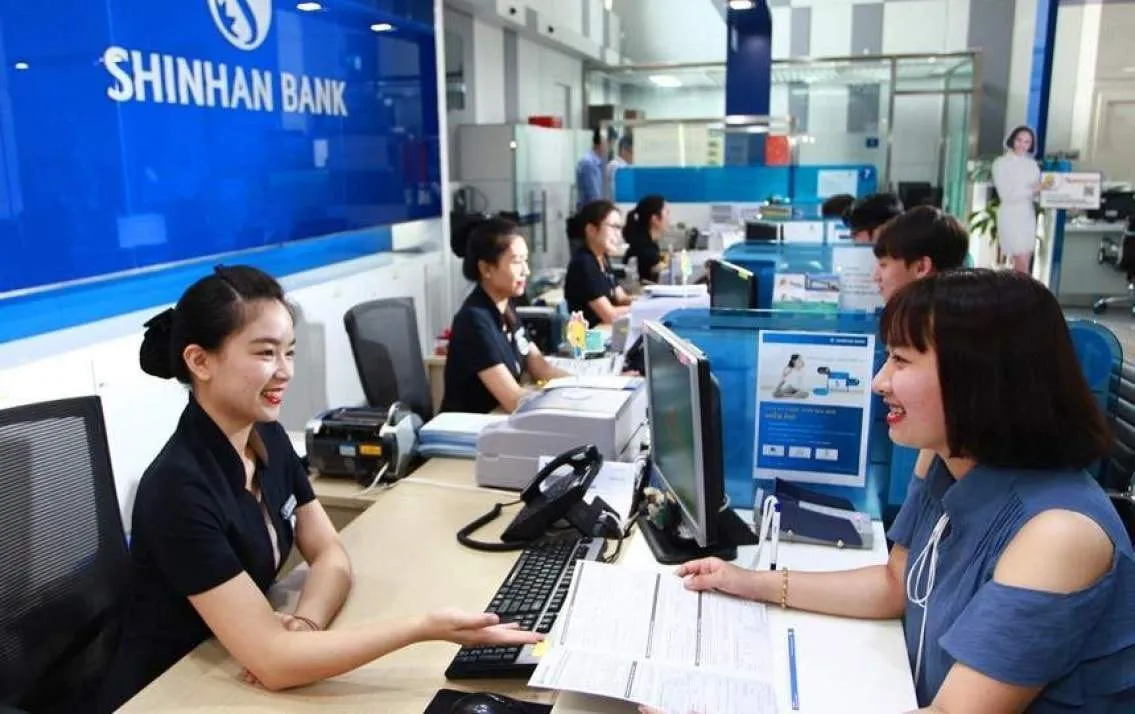Foreign financiers deepens engagement in Vietnamese market
Rising foreign investment flow in Vietnam has prompted overseas banks to expand operation in the country.
Inspired by many foreign businesses and investors making a splash in Vietnam, more financial institutions, especially from South Korea and Japan, are seeking to further invest or shore up their operations here.
| Shinhan Bank has increased its registered capital to US$245.4 million. |
Though there are two Korean banks doing business in Vietnam, still the Korea Chamber of Business Association in Vietnam has recently asked the Vietnamese government to license more Korean banks in Vietnam so that the institutions can support Korean investors when they do business in Vietnam.
The two Korean banks in Vietnam – Shinhan and Woori – are also rushing to promote their in-depth development in the Vietnamese market. Woori Bank has decided to add stock depository services to its license while Shinhan Bank has increased its registered capital from VND4.55 trillion (US$193.4 million) to VND5.71 trillion (US$245.4 million).
Hana, another Korean Bank, has recently also decided to enter the local market by acquiring a 15% stake of state-owned bank BIDV to become the strategic investor of the Vietnamese bank.
And it is not only South Korean banks, but financiers from other countries are also speeding up their investments in the Vietnamese market. One of Japan’s largest financial services providers Mizuho Bank Ltd and Singapore’s sovereign wealth fund GIC Private Limited also acquired more than 111.1 million shares of Vietcombank at a cost of some VND6.2 trillion (US$265 million) last year.
Another Japanese bank Mitsubishi UFJ is also willing to support VietinBank in boosting its registered capital for business facilitation, according to Kanetsugu Mike, CEO of Mitsubishi UFJ Financial Group (MUFG).
Big market
It is also understandable why Korean and Japanese financiers are becoming more interested in the Vietnamese market. Reports from the Ministry of Planning and Investment’s Foreign Investment Agency showed that South Korea and Japan were among leading foreign investors in Vietnam in recent years. Korean and Japanese banks thus can get a large number of customers from their countrymen who are doing business in Vietnam.
Besides, finance expert Nguyen Tri Hieu said that foreign financiers have also seen that the Vietnamese market, especially consumer finance, has high growth potential, given the country’s population of nearly 100 million with only 30% of them having access to banking services.
The international financiers have also expected to seize opportunities presented by new-generation free trade agreements such as the Comprehensive and Progressive Agreement for Trans Pacific Partnership (CPTPP) and the EU-Viet Nam Free Trade Agreement (EVFTA), which Vietnam has signed.
Experts also forecast Vietnamese banks would continue to achieve further improvement in profitability this year because of wider net interest spreads and lower credit costs.
Vietnamese banks achieved a higher aggregate return on assets in recent years, registering a rise of 1.1% in 2019 from 0.9% in 2018. Aggregate net income for the banks also rose 35% to VND70 trillion (US$3 billion) last year from the previous year, despite a moderation of credit growth.
However, the increase in the activity of foreign banks will make competition pressure on the local financial market fiercer, Hieu noted, adding Vietnamese banks need to operate on a larger scale with huge investments in technology and products through consolidations and mergers to create stronger institutions that are able to compete with foreign banks.
However, the presence of foreign investors will also bring many opportunities for the domestic monetary market and consumers will be the beneficiaries, he said.
Nine foreign-owned banks including ANZ, HSBC, Standard Chartered, Shinhan Bank, Hong Leong Bank, CIMB Bank, Public Bank Berhad, Wooribank and United Overseas Bank Limited are operating Vietnam. There are also about 50 foreign bank branches, more than 50 representative offices of foreign credit institutions and many foreign-owned finance companies.













